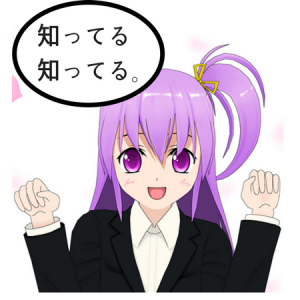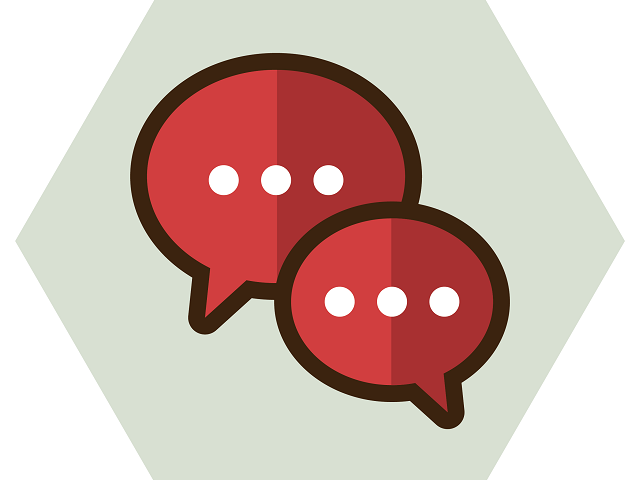I think that when it comes to learning Japanese, phrases are your friend. They are a really great way to learn new words and how the grammar of the language works at the same time. But what’s interesting is that there are actually a lot of simple Japanese phrases that use repetition of a single word.
We sometimes do a similar thing in English when you say to someone “thank you, thank you” after they’ve done you a favor that you greatly appreciate. And the same basic concept works in Japanese too, although it pops up a lot more often than in does in English.
This repetition is used to emphasize the speaker’s feelings to the listener and to make the sentence more rhythmic. For the most part, these “double phrases” have turned into set expressions used often in daily life.
Double Phrases in Japanese
The first one I’ll give you, is the English one I mentioned above.
- どうも、どうも。
Dōmo, dōmo.
Thank you, thank you.
Even though this phrase can be translated as “thank you, thank you” it might come across more naturally in English if you only said “thank you” once and added an exclamation mark to it that shows that emotion.
- どうも、どうも。
Dōmo, dōmo.
Thank you!
You could apply that same logic to all of these phrases, as it can come across as awkward in English when you say something twice in a row.
- 大丈夫、大丈夫。
Daijōbu, daijōbu.
I’m ok; That’s ok!
Another similar phrase to that last one would be:
- 良いよ、良いよ。
Ii yo, ii yo.
It’s ok!
These three “double phrases” are super easy to understand since repeating the first word doesn’t change the overall meaning of the sentence, it only adds emphasis. But there are some other forms of repetition that might need a little explanation for the newer student to understand.
(1) Repetition of a noun
- 不況、不況と言われている。
Fukyō, fukyō to iwa rete iru.
It’s said that it’s a bad recession.
The word 不況 (fukyō) means “recession” in Japanese and by repeating it for emphasis it can be understood within the sentence as “a bad recession.”
(2) Repetition of noun + case particle
There are some idiomatic expressions that are made by repeating nouns and particles. For example:
- 私は日に日に強くなる。
Watashi wa hi ni hi ni tsuyoku naru.
I grow stronger by the day.
I guess you could also interpret 日に日に as “day by day” if you wanted to.
 (3) Repetition of verb/adjective
(3) Repetition of verb/adjective
- 知ってる知ってる。
Shitteru shitteru.
I know!
- いや、高くない。安い安いよ。
Iya, takakunai. Yasui yasui yo.
No, it’s not expensive. It’s quite cheap.
- ダメだ、ダメだと、いつも思ってますけれどね。
Dameda, dameda to, itsumo omottemasu keredo ne.
I always think that it’s useless, you know?
- 行けども行けども、景色は一向に変わらない。
Ikedomo ikedomo, keshiki wa ikkō ni kawaranai.
No matter how long you go on, the scenery doesn’t change at all.
Have you heard any of these kinds of phrases before? I actually just came across the last one in a manga I just started reading the other day. A couple of girls are running through a labyrinth and every room is the same, no matter how far they go.
What are Onomatopoeia?
The definition of onomatopoeia (what a word!) is “the formation of a word from a sound associated with what is named (e.g., cuckoo, sizzle ).”
We use these sometimes in English, but the Japanese use it ALL. THE. TIME.
I bring it up here because often times they sound like a repeated word just like the phrases we went over before. But they are a little different since they “represent the sound” of something. Is that weird? Here’s what I mean:
ぺこぺこ (peko peko) is the sound that your tummy makes when it growls. The typical way that you would say you are hungry in Japanese is:
- お腹が空いています。
Onaka ga suite imasu.
I am hungry.
But with your new knowledge of ぺこぺこ (peko peko), you could use it instead to express your need for food.
- お腹がぺこぺこです。
Onaka ga peko peko desu.
I’m starving!
-Here is the intro scene to “Hungry Shooting Star – ぺこぺこながれぼし”
One slight difference between the first double phrases we went over, and these new onomatopoeia, is that you could just say the first half of the double phrases and it would still have meaning, but you can’t do the same thing with onomatopoeia .
You can change 良いよ、良いよ。 to just 良いよ。and it will still mean “it’s ok” just without the added emphasis. But you can’t just say ぺこ when you want to make the “hunger” sound. You always have to say ぺこぺこ.
How many of these onomatopoeia are there in total? HUNDREDS!
It’s one of those things that make the Japanese language truly unique. And if you read manga at all, then I can guarantee that you’ve seen them before. Here’s a couple more that are pretty cool:
The word ドキドキ (doki doki) is the sound that a heart beat makes when a person is nervous or excited.
- これからは毎日ドキドキさせるよ!
Kore kara wa mainichi doki doki saseru yo!
I’ll make your heart beat fast (from love) everyday from now on!
The word ぺらぺら (pera pera) is the sound of “fluency” in a language.
- 日本語がぺらぺらです。
Nihongo ga pera pera desu.
I’m fluent in Japanese.
And One Last One
And to end it off, there is one last word that I’d like to share with you. It’s そろそろ (soro soro) and it’s a little different from all the rest I’ve shown you.
そろそろ (soro soro) is used to say that is is “about time” to do something. We don’t really have an equivalent word in English, but it’s used a lot in Japanese so you’ll have to learn it sooner or later.
- そろそろ映画が始まるよ!
Sorosoro eiga ga hajimaru yo!
The movie is about to start!
Well guys I hope you enjoyed this post. Smash dat like button if you did!
I wanna know what you think of these types of Japanese phrases. Do you like them? Think they’re dumb? Let me know in the comments section below!
Further Resources for Learning Japanese:
#3 Get My eBook (Secrets to Learning Japanese) for Free

またね!

Hi Nick,
So glad to be able to find your article. 面白いです (ok to say?). 🙂
In any case, is it okay to use one of your sentences in my (Cantonese and Mandarin) language learning video? I want to show repetition of words in different languages (got the ok for a Spanish sentence; would love to include a Japanese sentence) and would like to use either:
– 私は日に日に強くなる, or
– ダメだ、ダメだと、いつも思ってますけれどね
If you’re okay with my using either of these sentences (or another you have on this page), I will of course credit you and have a link to your webpage.
If you want to see what my videos are like before you make a decision, they’re at: https://www.youtube.com/user/notnowigottago
Cheers,
Leslie
Hey Leslie, glad you liked the article! Yeah, please feel free to use any of the sentences you’d like.
Thanks!
どうもありがとう, Nick!
Well, keep up the good work!
Thanks, will do!
Hi,
This is really charming and captivating! your writing is so clear and easily understandable, even for people like me who are still new at taking up Japanese, I really enjoyed this reading, and believe it or not, you made me want to learn even more Japanese! Been wanting to visit Japan for years but somehow I always end up in India (can’t get over it), but I am definitely going to explore other places and Japan is first on my list 🙂 Thank you!
Hey Noa, thanks I am glad that the post was easy to read and understand! Sometimes I’ll read a book on Japanese or some website, and it will be a little too academic in its tone and that kind of gets in the way of learning.
So I try to have a much more conversational feel to my posts with some example sentences that you could use in real life too.